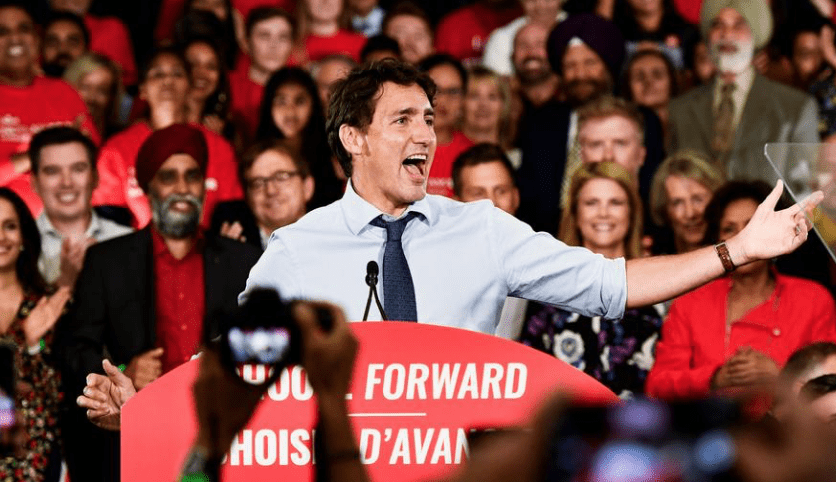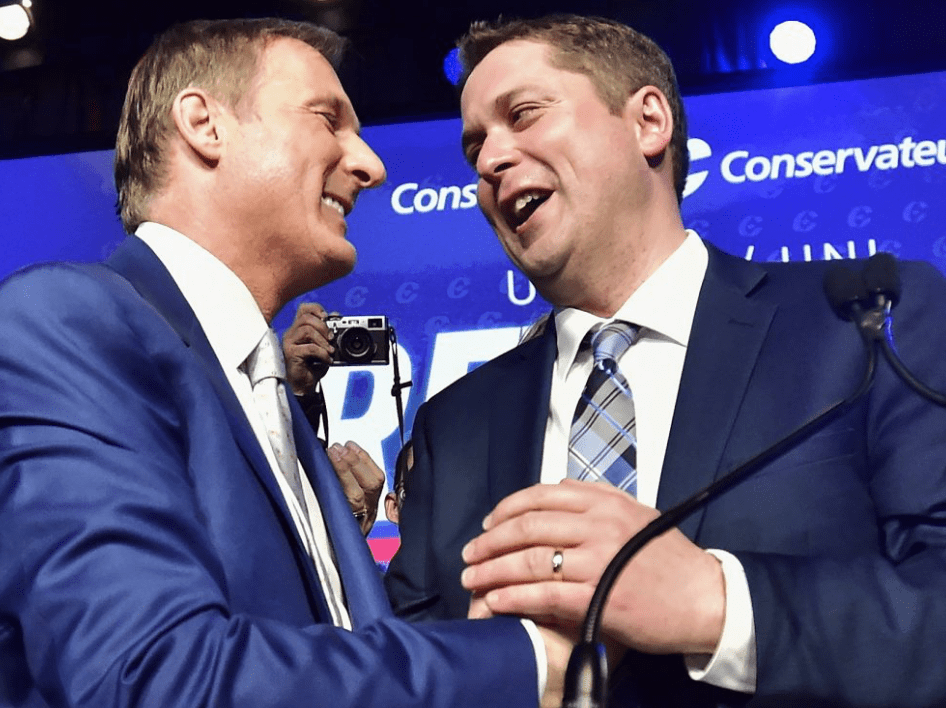Imagine that you're mid-election, and days into the campaign, you find out that your leader has done something terribly racist in the past like, say, dressed up in Blackface. Would there be some of way of trying to salvage the situation, to get rid of that leader who will soon be a millstone around your necks, and quickly come up with someone else who can carry the party in the next parliament? Well, that situation has just happened, and given the current system, there isn't an effective way for the Liberals to switch leaders. Once upon a time, it might have been different, but thanks to the Liberal Party's poor judgment a century ago, and compound mistakes in the decades since, we have been left with a leadership system that makes dumping a problematic leader a virtual impossibility leaving our democracy all the poorer for it.
Swapping leaders just before an election has become a bit of an Australian trend over the past decade, given that until very recently, their parties retained the original Westminster system's characteristic of having the caucus choose and fire the leader when it suited them. While it's a bit of an extreme example the instability of constantly changing prime ministers because the party got spooked in advance of an election call (heightened by the fact that they have long been in a situation of narrow majorities or coalitions means the loss of a mere couple of seats could upset the balance of power) has led to certain parties demanding a more Canadian-esque system where party memberships would do more to determine who the leaders would be, it nevertheless proves the point that our shared Westminster traditions are capable of dealing with rapid changes before elections, and that it's not a bad thing given the fact that it keeps the emphasis on the MPs and the party brand rather than the leader him or herself.
Part of the problem with the Canadian-led system of party leadership being determined by votes of the party membership (or worse, "supporters" who merely had to declare that they weren't a member of another party) is that it slowly created a system whereby the parties hollowed themselves out and became personality cults for their leaders a trend that has accelerated in recent years as those parties moved from delegated conventions to one-member-one-vote systems, to the most recent Liberal innovation of "supporters" who didn't need to be a member of the party. This false democracy and faux-presidential primary gave rise to party leaders believing that they had a "democratic legitimacy" that they would use to lord over their caucus with recall that the first leader chosen by delegated convention, William Lyon Mackenzie King, telling his caucus that they didn't hire him and they couldn't fire him when he became embroiled in scandal. Nowadays, MPs are no longer masters of their own destiny, but are reduced to drones to do as the leader demands their free votes curtailed, their speeches dictated to them from the leader's office, their rights as MPs in question.
Thanks to the centralization of power that this system has enabled recall that Trudeau and his staff pushed through changes to the party's constitution that eliminated party memberships and wiped out most of the accountability mechanisms within the party structure that could be used to push back against a leader Trudeau has ensured that the only way his leadership can be challenged officially is if he loses an election. This is a problem when it comes to keeping leaders accountable and on their toes. It essentially leaves it up to the unofficial pressures of MPs to make any kind of meaningful action with a leader they've lost confidence in speaking out en masse, resignations, and the like. That's something that has not yet happened (two expulsions, and one resignation later not counting the three other MPs who left caucus for various allegations of misconduct).
So just what might happen mid-election if, by a miraculous chance, that the leader chose to step aside? The party would have to convene its senior officials (the party's national board of directors) possibly along with the caucus, in order to name an interim leader, almost certainly with the proviso that they would hold a leadership contest post-election. It pretty much guarantees that they wouldn't form government because our elections have become so leader-centric that the loss of a leader would be devastating to the party brand because that brand is now subservient to the cult of personality of the leader, and without that leader for the media to focus its attention on, the party's chances would be sunk. Whereas in a system that was built for a potential for a leadership change in short order (rather than the farcical two-year process that some parties have undertaken), we have bastardized it so badly that any of the resilience has gone out of the system. Not to mention, all of the ads, signs, bus wraps and planes that focus on the leader (such as Team Trudeauâ„¢ branding) over the individual candidates would all need to be scrapped.
If, as would be the current case where the incumbent stepping aside is also the prime minister, things would be doubly complicated they might contrive that he or she would stay on as prime minister in a caretaker capacity (as Theresa May just did in the UK) while the interim leader fights the election, rather than swearing in the interim leader as prime minister for the duration (as there is no such thing as an interim prime minister). Nevertheless, we are reminded that we have so overcomplicated the question of leadership, so wholly undermined the very system that has evolved over nearly two centuries, in order to create these quasi-presidential contests that detract from what a Westminster parliament is supposed to be about. We shouldn't be fighting elections based on the leaders we should be fighting them on the basis of who the local MPs are, and the values that the party platforms present as chosen by the grassroots members and not the leader. This episode with Trudeau has shone a spotlight on this glaring vulnerability in our system that we have created for ourselves, and maybe, if we're lucky, enough people will reflect on it to realize that we need to change the direction we're going if we want our democratic system to survive future shocks.
Photo Credit: CBC News








